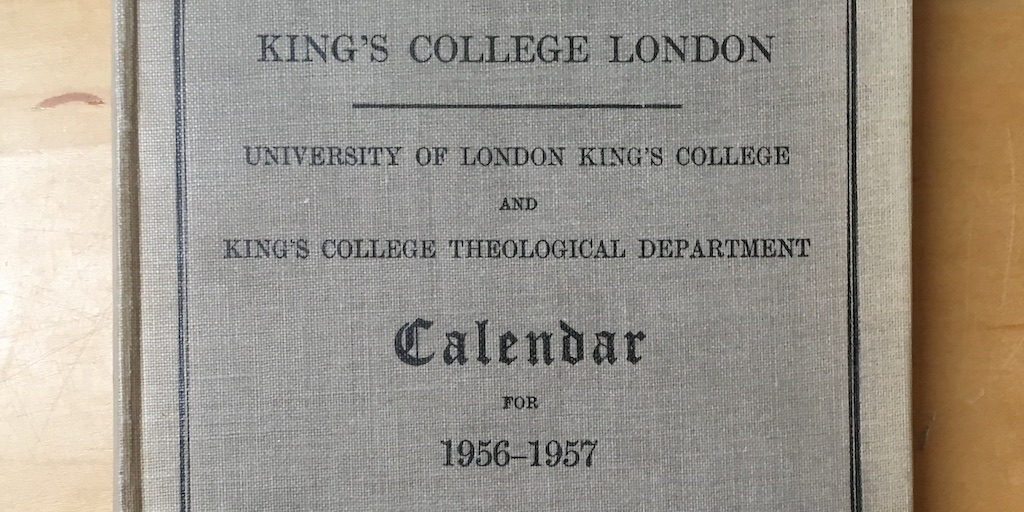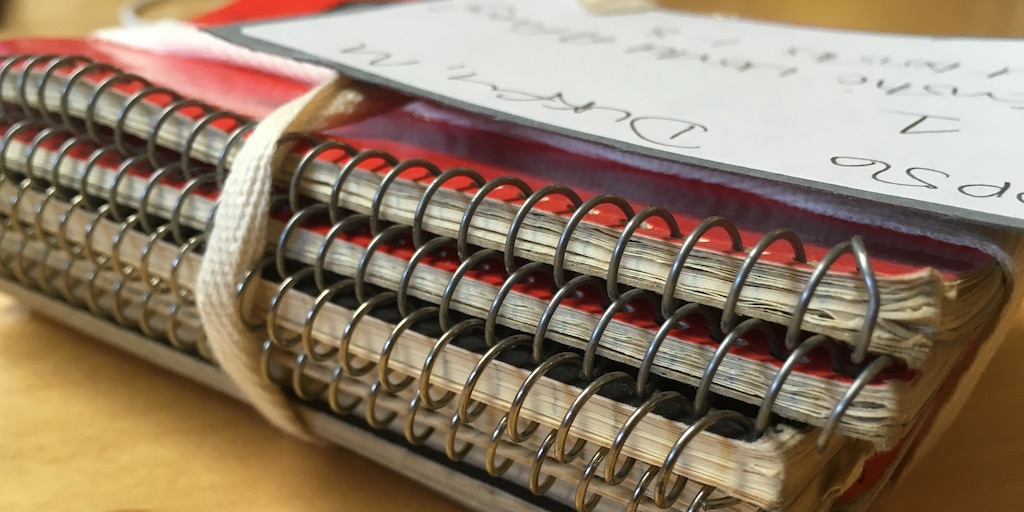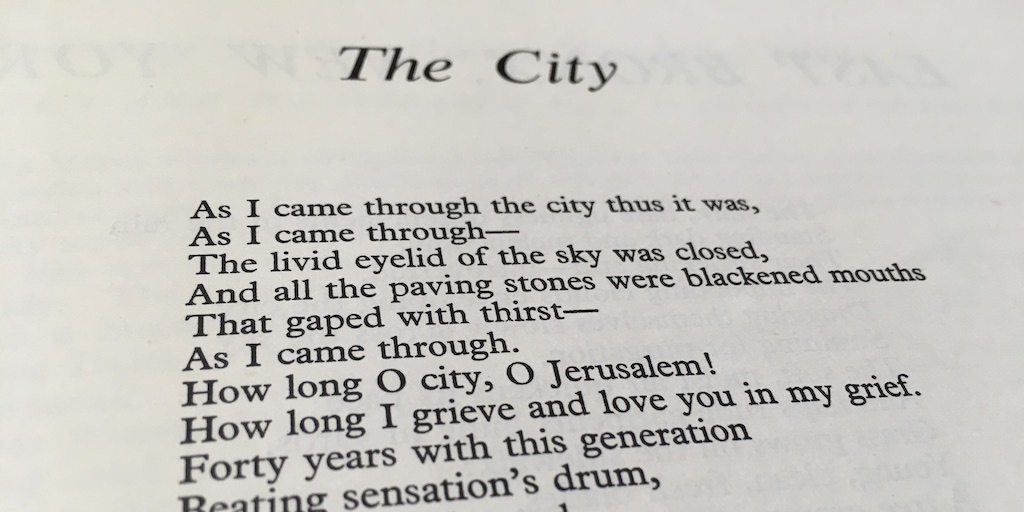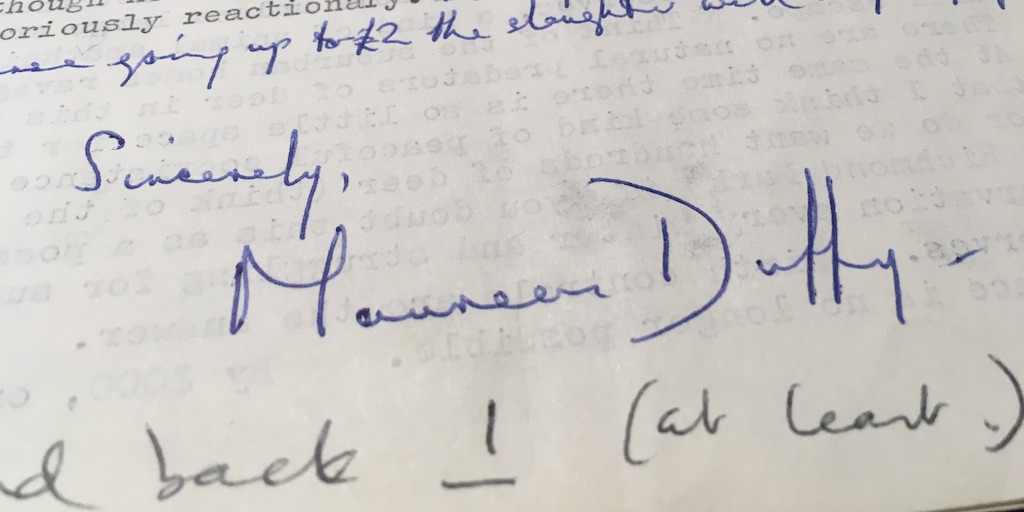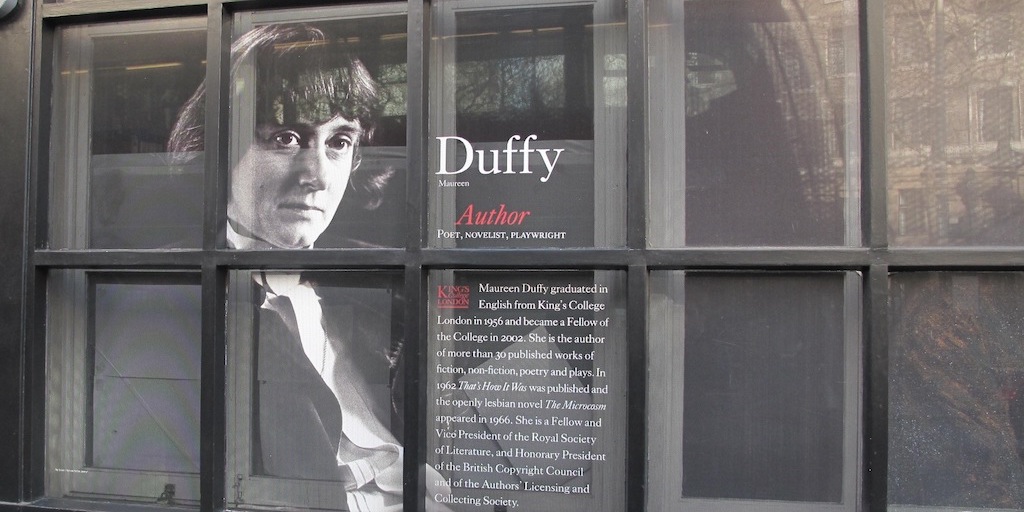Maureen Duffy at 80: In Times Like These
DUFFY AND KING'S
Header image: 'The City' by Maureen Duffy published in Lucifer, December 1954, King's College London Archives.
Panel Summary: the city as a space for new possibilities
by Phoebe Blatton
As part of the day celebrating Maureen Duffy at King’s College London in December 2013, I chaired a panel discussion on the subject of ‘King’s and Queen’s, London: histories in fact and fiction’. The panelists looked at Maureen’s time at King’s in the early 1950s, and how her experiences studying in London influenced her writing and work more generally as an activist and social commentator.
To give some context for my chairing this panel, I got to know Maureen Duffy personally in 2012 while I worked on a new edition of Brigid Brophy’s novel from 1956, The King of a Rainy Country through my publishing project, The Coelacanth Press. Maureen provided a wonderful insight into the life and work of Brophy, as well as her own and other contemporaries from that period.
Brigid Brophy was Maureen’s partner for many years. They shared writing as their profession, and were both progressive humanists, collaborating on projects such as the establishment of the Writer’s Action Group in 1972. Brophy’s The King of a Rainy Country is very much a London novel of the 1950s, with evocations of a rain-drenched Tottenham Court Road, seedy booksellers and bohemian digs. Moreover, it is a coming of age novel that deals with a young woman’s experience in the city and realisation of her not-so-straight leanings. Therefore, it is surely a novel that resonates with the real-life experience of Maureen Duffy.
The panel’s contributions began with Patricia Methven, Director of Archives and Information Management at King’s Library Services, who talked about Maureen Duffy’s archive, which she has diligently gathered together over many decades. During the day, a fascinating selection of documents and artefacts were on display outside the Grand Hall, assembled by Patricia’s team. Referencing this material, Patricia elaborated on Maureen’s working methods and the breadth of her campaigning.
Unfortunately, Dr Christine Kenyon Jones, a Research Fellow in the Department of English and Writer in the College’s Department of External Relations, could not be with us on the day, but provided her paper, in which she looked into the archives and referenced student newspapers of the time to reflect on what King’s was like in the 1950s. This paper was read out by Michael Harding, a writer and graduate from Goldsmiths College in History and Anthropology, and after a spell working as a tour guide on the River Thames, also something of an expert on the history of this area.
Something that particularly resonated during the session was the description of post-war London as a masculine city, or ‘patriarchy personified’ as Jean Rhys called it, even though so many architectural symbols of power and masculinity (banks, churches, factories) had been bombed, blasted apart, hollowed out by war. Although the 1950s summoned a return to gendered roles, and was certainly not a great time for women, homosexuals, or anyone marginal or part of a minority, I wondered how much that ruinous landscape could be seen as a physical echo of the structural breakdowns that were established by war and set to continue, and the structural breakdowns of class and gender that Maureen is interested in exploring through language and narrative.
The writer BS Johnson was a contemporary of Maureen’s at King’s who also gained a university education against the odds, and likewise, tested the conventions of fiction writing. In 1965 he wrote an article in which he discussed the architects Alison and Peter Smithson, quoting their manifesto from 1954 in which they called for London to be thought of as a ‘collective work of art’ or living organism, which if you were aware of it as such, could mean things like ‘entering or moving or being quiet could become positive and not residual’[1].
This very much chimes with some of the thoughts I had about Maureen Duffy’s writing on London, and the way in which a city in ruins can become a place of ‘deviance’ and a fertile ground for ‘something new’.
References
[1] Smithson, Alison and Peter, quoted in Johnson, B.S., Selected Prose and Drama of B.S.Johnson, London: Picador, 2013, p399.
Sections and Chapters
Duffy and King's introduction
Katie Webb
Finding Maureen Duffy in the Archives
Patricia Methven
King's in Maureen Duffy's time
Christine Kenyon Jones
Kings, and Queens, Histories in Fact and Fiction
Clare A. Lees
Panel Summary: the city as a space for new possibilities
Phoebe Blatton
Writing, Rites, and Rights
John Stokes
A Window for Maureen Duffy
Clare Brant
Fighting and Writing introduction
Katie Webb
Duffy and the European Writers' Congress
Lore Schultz-Wild
An 80th Birthday Honorific Speech
Ingrid Protze
Memories of the German Writers' Union
Sabine Herholz
On Maureen
Katalin Budai
A copyright warrior and a true defender of rights
Olav Stokkmo
Recognising writers: responses, records, royalties
Katie Webb
Maureen Duffy's contribution to gay rights and lesbian visibility
Jill Gardiner
For Maureen Duffy, Poiêtes
Karen Gevirtz
Editor's introduction
Katie Webb
Maureen Duffy: Scrivener and Prophet
Charles Lock
Words that count: Maureen Duffy
Marina Warner
Browse articles on Duffy and King's

